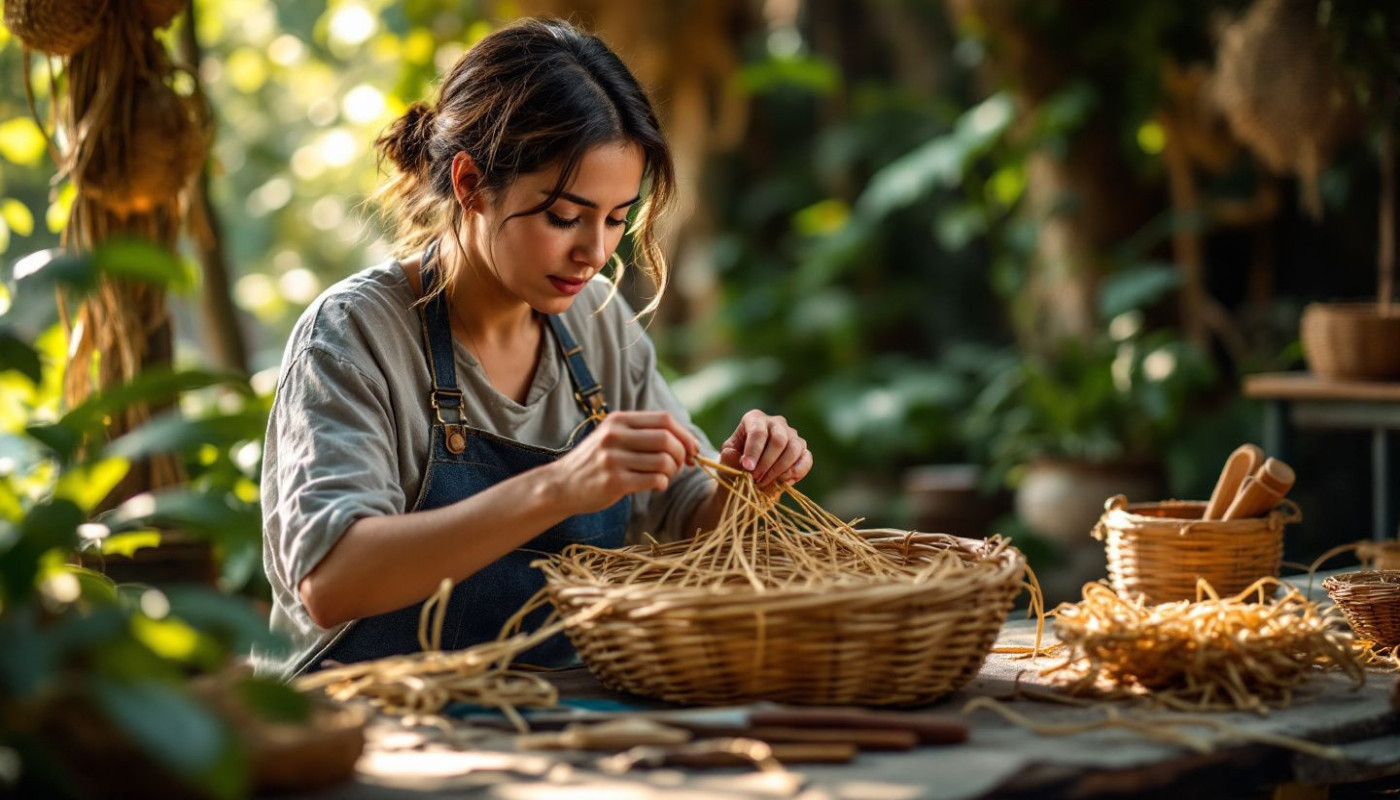Table of contents
Discover the journey behind artisan-made wicker baskets and what makes them a sustainable choice in today's world. Uncover the unique qualities that set these handcrafted items apart from mass-produced alternatives. By exploring the paragraphs that follow, learn how traditional skills, eco-friendly materials, and conscious consumption intertwine within the world of wicker craftsmanship.
Materials and environmental impact
When evaluating the sustainability of artisan-made wicker baskets, attention must be given to the sourcing and processing of natural fibers such as willow, rattan, and bamboo. These eco-friendly materials are celebrated for their biodegradability and renewability, as they can be regrown and harvested with minimal impact on ecosystems. Life cycle assessment reveals that locally harvested natural fibers for sustainable wicker baskets require less transportation, significantly reducing energy consumption and lowering the overall carbon footprint. The cultivation and hand-processing typical of artisan production further minimize emissions compared to mass manufacturing methods. Consumers seeking products with a low carbon footprint and environmental sensitivity may be drawn to the use of locally sourced, biodegradable materials in a basket set, which exemplifies the beneficial environmental profile of these handcrafted items. For those interested in exploring options, see basket set.
Craftsmanship and traditional skills
Preserving traditional craftsmanship in the making of artisan baskets is a vital way to maintain intangible cultural heritage and ensure the survival of age-old weaving techniques. Skilled artisans, often drawing on generations of expertise, pass their knowledge through apprentice-style learning, which allows for adaptation while safeguarding foundational methods. This approach not only upholds the artistry and precision characteristic of authentic artisan baskets but also reinforces sustainable production practices by prioritizing renewable natural materials and low-impact processes. Each basket, crafted with care and intention, serves as a testament to cultural heritage, embodying both the story and environment of its makers. Sustaining these weaving techniques is indispensable for communities where traditional craftsmanship is closely linked to identity, livelihoods, and ecological responsibility.
Economic empowerment of communities
The production and marketing of artisan-made wicker baskets serve as a powerful driver for economic empowerment among rural artisans and marginalized populations. When crafted within the framework of a social enterprise, these initiatives prioritize fair trade baskets, ensuring that producers receive equitable compensation and dignified working conditions. Income generation through the sale of these products not only uplifts individual artisans but also stimulates wider community development by fostering local job creation and supporting ancillary industries. Fair trade principles embedded in this sector protect against exploitation and promote sustainable livelihoods, allowing artisans to invest in education, health, and local infrastructure. As a result, the ripple effects extend beyond the immediate producers, benefitting families and communities and providing a replicable model for economic resilience in rural areas.
Durability and product lifespan
Durable wicker baskets crafted by artisans are renowned for their extended product lifespan, often outlasting mass-produced counterparts. Handcrafted techniques and quality natural materials, such as rattan or willow, result in a sturdy construction that resists wear and tear over years of regular use. Unlike baskets subjected to planned obsolescence in industrial manufacturing, artisan-made pieces are easily maintained and repaired. Repairability is a key advantage; minor damage such as unravelling or breakage can typically be fixed by reweaving or replacing individual strands rather than replacing the entire basket. This characteristic supports sustainable consumption by encouraging users to care for and prolong the life of their baskets. Longer product lifespan directly contributes to waste reduction, as fewer baskets end up discarded, minimizing landfill impact and resource depletion associated with frequent replacements of low-quality, mass-produced alternatives.
Consumer choices and sustainable lifestyles
Embracing mindful consumption through the purchase of artisan-made wicker baskets empowers individuals to actively participate in eco-friendly living and foster sustainable choices. By favoring artisan products crafted with skill and care, consumers support traditional techniques that often utilize renewable materials, resulting in a lower environmental impact. Ethical shopping decisions such as these not only promote conscious consumerism but also encourage local economies and small-scale producers, reinforcing the connection between responsible purchasing and positive social and environmental outcomes. Supporting this approach aligns with the values of those committed to sustainability, as each basket purchased represents a tangible step toward creating a more balanced, environmentally friendly future.












